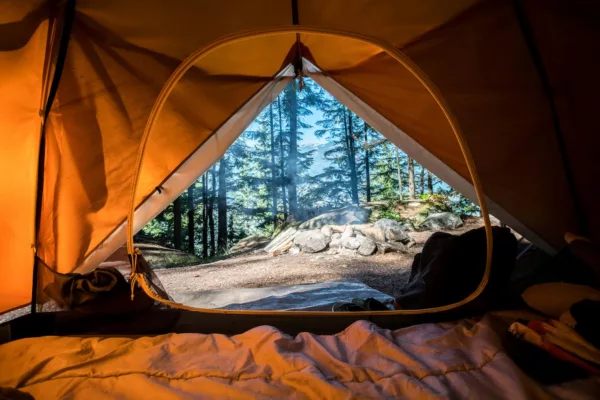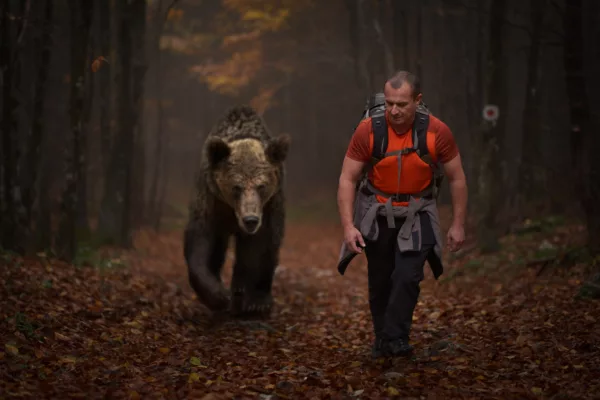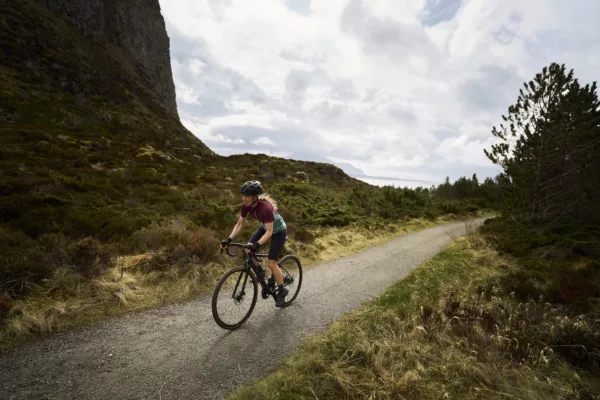The Happy Camper: In Praise of High-Tech Camp Gear

“If you stand in the way of progress you’ll just get run over.”
It seems some campers hate that saying, fearing it signifies the end of “true” wilderness travel. Others welcome it, and cherish the thought of making their next trip much easier—and a lot safer.
On a past canoe trip in Algonquin Provincial Park, I came upon a father and son camped on a remote lake. I did the courteous thing that any wilderness paddler should do and went over to say hello. The young boy greeted me; his face puffed up like a balloon and covered in a spotted rash. He was obviously having a severe allergic reaction. I asked if he needed any medical care or assistance in an evacuation. In my pack, I had a first-aid kit with an EpiPen. I also had a SPOTGen3 and a Globalstar satellite phone. Both communication devices could get help quickly.
Before the boy could say, “Yes, please,” the father, in a gruff over-the-top mannerism, told me to mind my own business.
“The boy simply has to toughen up out here,” he said, adding, “there was no way his son was going to wimp out by using some unnecessary new high-tech gadget.”
I paddled away, phoned the park warden to inform him of the dilemma and park employees rescued the boy before the hour was up. I discovered later the boy had gone into the shock by the time they transferred him to the nearest hospital. Luckily, he survived.
I was disgusted in the father’s ignorance and arrogance. But I was more surprised at the father’s loathing of technology. I completely understand a camper’s distaste for having an iPhone ping interrupt the call of a loon or photos from LOLCats.com been shown around the fire. When we head to the woods, we’re looking to break free of artificial connections.
Being connected for safety reasons is a totally different deal, however. It’s ludicrous to believe some type of technology that can extend your life on this Earth represents some form of evil witchery. I believe that if there is a way to stay connected to the civilized world, you’d be foolish not to pack it along.
My personal choice of satellite communication devices to take to the wilderness area is the SPOT Global Phone. A sat phone may not be for everyone, especially if you’re doing weekend outings in parks where cell coverage is available, but for me it’s perfect. It’s an affordable lightweight handheld device that allows me to call worldwide, dial 911, receive text messages and check voicemail and email. I even do the odd radio interview with the phone—the voice clarity is great.
My other choice is the SPOTGen3 GPS Satellite Messenger. This compact piece of technology allows you to signal 911, if needed—the Gen3 grabs GPS coordinates and sends them to emergency responders. It also can send a pre-set text or email message to convey to family and friends that you’re safe but going to be delayed on your trip. The communication device also tracks your progress so friends and family are familiar with your route plan; a huge bonus in case search and rescue is required. You can also send a note to others back home by way of text or email—or even Facebook or Twitter —that shows them where you are on a Google Map along with a message that you’re “OK.”
The biggest benefit these communication devices give to me, however, is piece of mind. Not only for me, but for my friends and family back home. To some, having such devices may take away some of the sense of adventure or challenge of wilderness travel. To me, they provide an opportunity to reduce my anxiety level so I can enjoy myself more while I’m out there.














